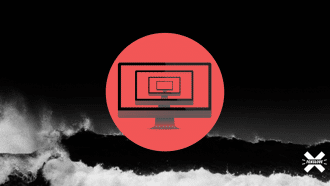The Breakers Roar: A Facebook Content Moderator’s Regret
By Spencer Darr, who began working as a Facebook content moderator in Austin, Texas, in the spring of 2018.
*Content warning – this post contains matter that some readers may find distressing.*
If I had it to do over again, what would I do differently over three years after working as a content moderator at Facebook?
‘Creatures of the Night’ is what we called ourselves in the Workplace group chat, those of us who worked the graveyard shift from 12am to 8:30am. What kind of creatures we were – or whether we were predators or prey – is still hard to say.
For not much more than you can make at Wal-Mart, now post-lockdown, we were expected to enforce policies on content and navigate situations that police officers in special units and federal agents require special training and support to handle.
“In the Facebook Papers, what it’s like to be a content moderator wasn’t mentioned much at all”
In the Facebook Papers leaked by whistleblower Frances Haugen in October 2021, and the Congressional hearings held since then, what it’s like to be a content moderator wasn’t mentioned much at all.
Writing for Wired, Gilad Edelman said “Content moderation, on its own, is a sucker’s game” when it comes to figuring out how best to make social media safe through changes to Section 230 (a section of US law dealing with website platforms).
It’s not a sucker’s game for the people moderating the content. Algorithmic and legislative changes alone will not make social media safer.
To do that, you need to address the economic inequality and psychological harm experienced by the thousands of people moderating the content.
“The job leaves workers with psychological damage that lasts long after the temporary contract for the job ends“
For years, past and present content moderators have made the case internally and externally, informally and formally, that Facebook needs to increase content moderators’ pay, stop outsourcing this core business function to other firms and provide better tools and mental health resources so they can keep social media as safe as possible while keeping themselves as safe as possible.
And still, the pay is too low, the job remains mostly outsourced to companies like Accenture – who make $50 for every $18 an hour we made on average – and the job still leaves workers with psychological damage that lasts long after the temporary contract for the job ends.
We used to joke about how useless and inconvenient the monthly wellness coach check-ins were. The wellness coaches did the best they could but our real wellness check-ins were with each other.
One graveyard shift, my colleague K wore a shirt with a tiger on it that said SAVAGE. Her two-year-old son turned five this year. C, a bespectacled Army veteran who served in Iraq, gave her grief about the shirt she was wearing and she gave him grief for being old.
“Wellness coaches did their best, but our real check-ins were with each other“
K was in her 20s, married with a two-year-old, and C and I were both in our 30s. That qualified the two of us as “old” for Wave 6.
K said the reason she had a kid was because she wanted to have a legacy. C asked me what kind of music I liked and when I told him country, which he mostly didn’t like, he suggested I listen to Sturgill Simpson.
I’m still dealing with the effects of working there. I’ve missed having people from Wave 6 to talk to and try to process seeing night after night of hellish content in that North Austin office tower.
“I wish I could see pictures of my colleague’s two-year-old, alive and healthy, to balance out memories of dead children in dumpsters.”
I wish I could go back to the parking garage where some of us would go for smoke breaks and talk. I wish I could see pics of K’s two-year-old alive and healthy again to balance out memories of dead children in dumpsters. He’s five now.
I wish I could see pics of C’s pet pugs again to balance out memories of tortured animals. I don’t know how old C’s pugs are now.
I feel old and I don’t know how to get back in touch with them. I went from being forced to be on Facebook as a condition of employment to having no social media at all now as a condition of trying to keep my mental health stable.
“It’s digital, but it’s real life.”
I’m pretty sure they both would make fun of the 60 Minutes Australia interview I did and the “broken man” I’ve supposedly become and I would laugh along with them.
“It’s digital, but it’s real life.”
Maybe they’re struggling alone with similar issues. Maybe that’s why I can’t find them whenever I search for them in vain, at three in the morning online, while listening to the music C suggested years ago.
I’m done with Facebook not only as a contingent employee, but also as a user and if you care about the people who make social media safe, I encourage you to do the following:
- deactivate or delete your accounts for all Meta services including Messenger, Instagram, and WhatsApp and make this article part of your last post
- buy products from companies like LUSH who have also left social media due to its lack of safety
- join and support organizations like Foxglove who advocate for content moderators.

